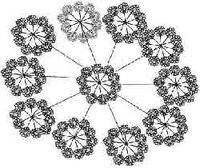Template:Ancient Orders
The Ancient Orders of Overseers

We see more than one word "paqad" translated Cite error: Closing </ref> missing for <ref> tag which included ideas like "oversight, care, custody, mustering, visitation, store".
All these words together described the role of an overseer in the national network of the tens, hundreds, and thousands. They supplied oversight to prevent corruption; They were part of a charitable network providing care and welfare for the people; They would take custody of the property of the ministers they served in the case of death or loss of capacity to make sure it got to the next minister chosen by the people. In time of war or attack they would muster those who would come to the aid of society; In the time of disease or famine they would not just visit but bring aid to to those communities that needed more help which is what the practice of Pure Religion was all about; Because they were connected in the network, gathering with other overseers of congregations they could call on a huge storehouse of aid without putting all their supplies in one place.
Before the Church and the Church in the wilderness there was Abraham and Melchisedec who was tithed to and provided a righteous mammon through a network of living Altars.
Israel, the early Church and many nations throughout history gathered in a numerical pattern of tens, hundreds, and thousands. An overseer is a joint heir in a national network and one of the main purposes of an overseer was to account for those he served by keeping everyone connected in a system of service. He would gather with other overseers like himself in his own congregation called an Order. Those who chose him as overseer did so in hope that he would connect them with the rest of the people seeking the kingdom of God in other congregations.
- ↑ Garcillasso de Vega, an ancient Inca historian says Peru was divided into small districts containing ten families with each registered under a magistrate.